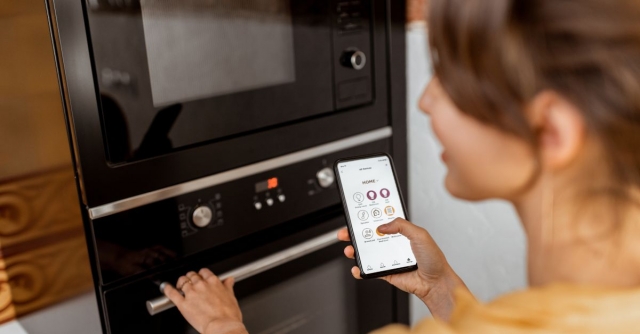We live in a world where it seems like everything connects to the internet or through our smartphones. Even the appliances in our home usually have some sort of Wi-Fi or Bluetooth capability.
However, are these smart appliances a good investment or a colossal waste of time? The best way to look at this is by weighing the pros and cons of smart appliances and coming to our own conclusions.
Pro: Convenience and Efficiency
Smart appliances offer unparalleled convenience and efficiency compared to their traditional counterparts. If you stop at the store to pick up something on your way home from work, you can use your smart fridge to take the guesswork out of trying to remember if you need eggs or not.
These devices come with advanced features that streamline daily tasks, allowing you to focus on more important aspects of life. By automating routine functions, smart appliances can significantly reduce the time and effort required to manage household chores.
Con: Initial Cost and Installation
Despite their many benefits, smart appliances often come with a hefty price tag. The initial cost of purchasing these devices is often a significant barrier for many homeowners.
Smart appliances are also more likely to need professional installation instead of just handling them yourself, which can add to the cost. While they may provide long-term savings on utilities and maintenance, that initial hurdle is still an important one to consider.
Pro: Energy Efficiency and Cost Savings
Manufacturers design smart appliances with energy efficiency in mind, making them an attractive option for environmentally conscious homeowners. You can’t weigh the pros and cons of smart appliances without considering their impact on the environment and how they can lower your monthly utility bills.
By understanding how environmental sensors work, you can see how these appliances use real-time data to automatically adjust, reducing use and limiting the energy they spend. Over time, the cost savings from reduced energy consumption can make the investment in smart appliances worthwhile.
Con: Privacy and Security Concerns
One of the most significant drawbacks of smart appliances is the potential for privacy and security issues. Because these devices connect to the internet, they often collect and transmit data about your usage patterns and personal preferences.
While companies aim to use this data to improve performance, there’s always a risk of it falling into the wrong hands. Cybersecurity threats pose a real concern, as a breach could compromise your privacy and the operation of your appliances.
Overall, smart appliances offer a modern and efficient solution to many household needs, but they also come with challenges that you shouldn’t overlook. If you’re considering integrating these devices into your home, consider the benefits and drawbacks carefully.






